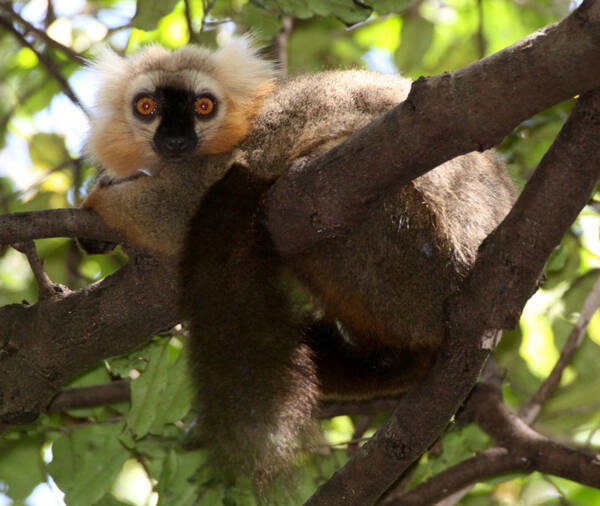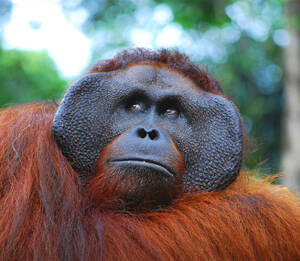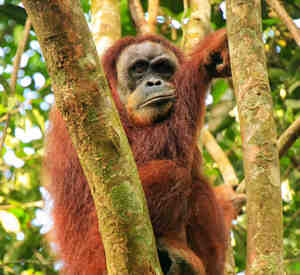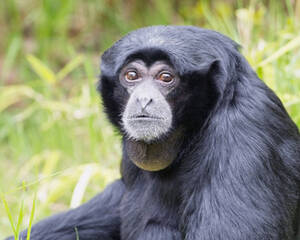Eulemur sanfordi
IUCN
LCBasic Information
Scientific classification
- name:Eulemur sanfordi
- Scientific Name:Eulemur sanfordi,Sanford's Brown Lemur
- Outline:Primates
- Family:Lemuridae Lemuridae
Vital signs
- length:38-40cm
- Weight:1.8-2kg
- lifetime:20-25years
Feature
Both sexes are dark brown, with the male having a distinct cream mane and a grey beard with ear feathers.
Distribution and Habitat
The Sangeru's lemur is found only in the far north of Madagascar.
The Sangeru's lemur inhabits tropical rainforests, with some species found more in dry deciduous forests. The lemur is arboreal, spending most of its time in the upper canopy.
Appearance
The Sangeru is a medium-sized lemur. The head and body length is 38-40 cm, the tail length is 50-55 cm, and the weight is 1.8-2 kg. The main mode of movement is jumping on their four legs. These lemurs are able to jump considerable distances, and their long furry tails help them maintain their balance. Both sexes are dark brown, with a lighter underside and darker area at the end of the tail. Females are reddish brown, while males are darker brown. The most obvious difference is that the male ear feathers have a distinct cream mane and gray beard, which the female lacks. The male's nose and muzzle are black, while the female's face and head are completely gray.
Details
Sanford's Brown Lemur (scientific name: Eulemur sanfordi) is called Sanford's Brown Lemur in foreign language. It has no subspecies and is a medium-sized lemur.

Sanford's Brown Lemur is active at different times throughout the day and night. It is gregarious, but the group is not fixed. Usually there are 3 to 12 individuals in a group, sometimes 9-12 together. Each individual smears urine on the body for scent identification. There is overlap in territory, but adjacent groups generally avoid contact. Highly adaptable to the forest.
Sang's lemurs reproduce seasonally, mating usually occurs in April-May. The gestation period is about 120 days, and the cubs are born before the rainy season in September-October. Generally, only one offspring is born per litter. Sang's lemurs reach sexual maturity in 1-3 years and live for 20 to 25 years in the wild.
The distribution range of the Sangeru lemur is very limited and the number is decreasing. The main threats are habitat destruction, forest development for farmland, and almost complete loss of primary forest, all of which are the result of explosive human population growth in Madagascar. This problem is exacerbated in such a small and confined area. Hunting and capture for food or pet trade also pose a significant threat.
Listed in the 2012 Red List of Endangered Species of the World Conservation Union (IUCN) ver 3.1 - Endangered (EN).
Listed in Appendix I of the CITES Convention on International Trade in Endangered Species.
Protect wild animals and stop eating game.
Maintaining ecological balance is everyone's responsibility!








